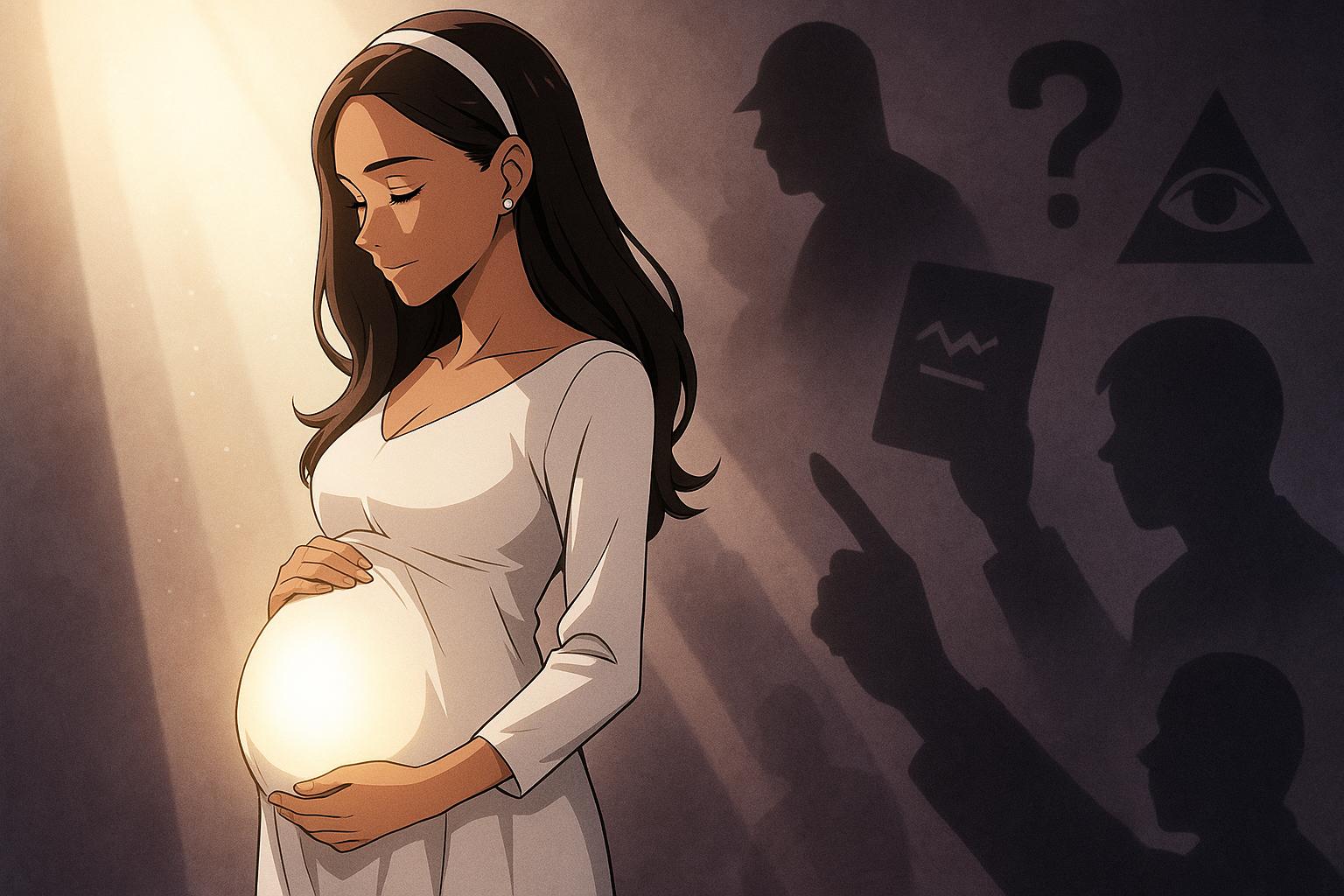Meghan Markle has recently faced an onslaught of bizarre conspiracy theories surrounding her pregnancies, ignited by an anniversary post celebrating her seventh year of marriage to Prince Harry. The Instagram collage, showcasing intimate moments from the couple's life, included a photo of Markle with her bare baby bump and a sonogram. This seemingly innocent display of personal history has unfortunately stirred malicious speculation among various internet trolls, suggesting that Markle faked her pregnancies and resorted to wearing a prosthetic belly. Some individuals have even claimed that her children, Archie and Lilibet, are merely actors.
The resurgence of these unfounded theories, particularly prevalent online, has been exacerbated by social media platforms such as Twitter and YouTube. Critics have scrutinised Markle's bare bump, arguing it looks "too shiny" or "too high," and scrutinised the legitimacy of her sonogram, claiming it lacks essential details such as a hospital name or ID. Royal commentator Liz Jones vehemently dismissed these claims as ludicrous, stating that the idea of Markle engaging in such a deceitful act to undermine the royal family is a stretch of the imagination.
These conspiracy theories concerning Markle's pregnancies are far from new; they reappear with alarming frequency. Following the release of Netflix's docuseries "Harry & Meghan," they gained renewed traction, often propagated by notable figures such as her estranged half-sister, Samantha Markle. The challenges posed by these narratives highlight not only the personal toll on Markle as a mother but also the broader issue of how women, particularly those in the public eye, are often scrutinised and subjected to unreasonable conspiracy theories about their personal lives.
Delving into the underlying motivations, a significant component of these theories can be traced to misogynistic roots. Such claims serve to undermine the legitimacy of Markle's children, effectively casting doubt on their lineage and threatening her standing within the monarchy. The historical parallels with past conspiracy theories reveal a troubling pattern, as public figures, especially women, have often fallen victim to such scrutiny—a reflection of society’s broader discomfort with women who challenge traditional norms.
As the chatter surrounding Markle's pregnancies continues, it becomes evident that this narrative goes beyond mere curiosity; it points to a concerning trend. The rise of the 'moonbump' theory, which claims she used a prosthetic pregnancy bump, reflects a deeper psychological and sociological phenomenon. In an environment where misinformation spreads rapidly, these speculations can have lasting effects on public perception and personal reputation.
The conversation surrounding Markle and her pregnancies is not simply about her individual experience; it is indicative of a larger dialogue concerning intrusive scrutiny and the societal pressures placed on women, particularly mothers. As public interest in high-profile figures intensifies, the implications of these conspiracy theories extend into personal realms, affecting not only those accused but also the broader cultural context regarding women in the public eye.
Ultimately, the unfounded conspiracy theories about Meghan Markle serve as a stark reminder of the challenges faced by women in the limelight. The impact of such narratives on their lives is profound, calling for a more compassionate and nuanced understanding of the complexities inherent in motherhood and public life.
Reference Map:
Source: Noah Wire Services
